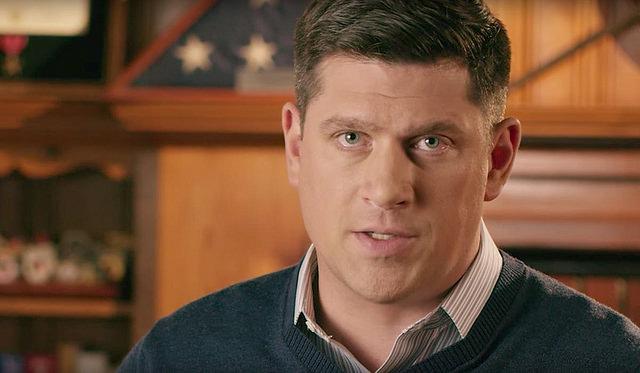If there’s one thing political candidates, regardless of party affiliation, can undoubtedly agree on, it’s that voters are wildly impressionable. They’re susceptible to the same subconscious influence of general marketing.
In the same way commercial advertisements convince a subject to either buy or pass on a product, political advertising aims to induce the same inner conflict. Advertisements bolstering or condemning a fellow candidate can have a lasting impact on both voter attitudes and election results as a whole.
It’s simple social psychology — as an undecided voter, the more content you see thrashing one candidate, the less inclined you are to support them. The more you see propping up another, the more likely you are to support them.
While there’s inevitably room for exceptions to this binary approach, the strategy of flooding the television market with brash, dramatic messages designed to trigger strong emotions, at even the most basic level, works. Just ask US Sen. Ron Johnson, R-Wisconsin, who defeated US Sen. Russ Feingold, D-Wisconsin, in 2016 largely due to a drastic influx in political advertising in the election’s final weeks. Feingold held a sizable — if not seemingly insurmountable lead over Johnson — until the Republican campaign bombarded the Wisconsin public with a grotesquely unethical increase in advertising. While it’s unequivocally within a candidate’s rights to advertise as they see fit, the ethics of such a move are far more contentious.
At first glance, Johnson won his election fairly. But through an ethical lens, the outside spending that catered to his campaign calls to question who would be representing the state of Wisconsin had that final week not included such a saturation of advertising aimed at salvaging Johnson’s candidacy.
Point Counterpoint: This November, vote Baldwin for a candidate who cares about Wisconsin’s future
This scenario, concerningly, is not an isolated incident. Instead, the same storyline is plaguing US Sen. Tammy Baldwin, D-Wisconsin, as she campaigns against Sen. Leah Vukmir, R-Brookfield, and former US Marine Kevin Nicholson for this November’s state senate elections. The main detail to highlight in this instance of outside spending, however, is not the presence of the extraneous spending in the first place but the unprecedented, if not historic, level of monetary influence on this election.
This Senate election has already seen nearly $10 million in outside spending, the lion’s share of which has been allocated to television advertisements which tear apart Baldwin, unabashedly praise Nicholson or sometimes both at the same time. While some of the ads have been pro-Vukmir or pro-Baldwin, the majority are focused on supporting Nicholson’s candidacy. Nicholson, a Republican candidate never held national office, has been the sole beneficiary of close to $5 million in outside support compared to just $909,000 supporting Vukmir.
As if the excess in Nicholson-centric marketing wasn’t troubling enough, Baldwin is facing a uniquely frequent and malicious onslaught of negative marketing. According to data from the Center for Responsive Politics, Baldwin is on the receiving end of more than four times the negative advertising than any other Senate candidate.
Let’s establish something right off the bat. It’s well within Nicholson’s right to negatively advertise against Sen. Baldwin, just as it’s well within Baldwin’s right to negatively advertise against Nicholson. But who in their right mind could reasonably argue the fairness of an election, in which the solely realistic Democratic Senate candidate is facing more negative advertising than any other senator in the entire country?
A fool’s argument would be to suggest there’s simply more negative topics to discuss in the context of Baldwin than there is for any other candidate. Take one looks at Nicholson’s spokesperson Brandon Moody and you’ll soon realize the goal of such a corrosive campaign is not to reveal the negatives of Baldwin’s candidacy for the betterment of Wisconsin, but to force Nicholson into the Senate at whatever the cost. Moody, in reference to the 2016 Johnson-Feingold senate election, made his perspective glaringly clear, saying “They beat Russ Feingold already doing it this way.”
Essentially, Moody, a singular voice tasked with representing Nicholson and his entire campaign, says getting Nicholson elected at whatever ethically questionable cost is more important than presenting a candidate who will serve Wisconsin best. This strategy would be like attending a silent auction, waiting until bidding is near closing, and writing in the highest bid on all items at the last possible moment. Will you likely win every item? Yes. Is it within your power to do so? Yes. Does it create an environment where the masses benefit? Absolutely not.
Nicholson’s campaign is greedy, unethical and appalling. But, most importantly, his campaign not only knows all those negative connotations but also embraces them. Electing a political candidate should be predicated on the honesty of presentation, not monetary advantage and public arrogance.
Lucas Johnson (lucasjohnson@badgerherald.com) is a sophomore majoring in journalism and strategic communication.


